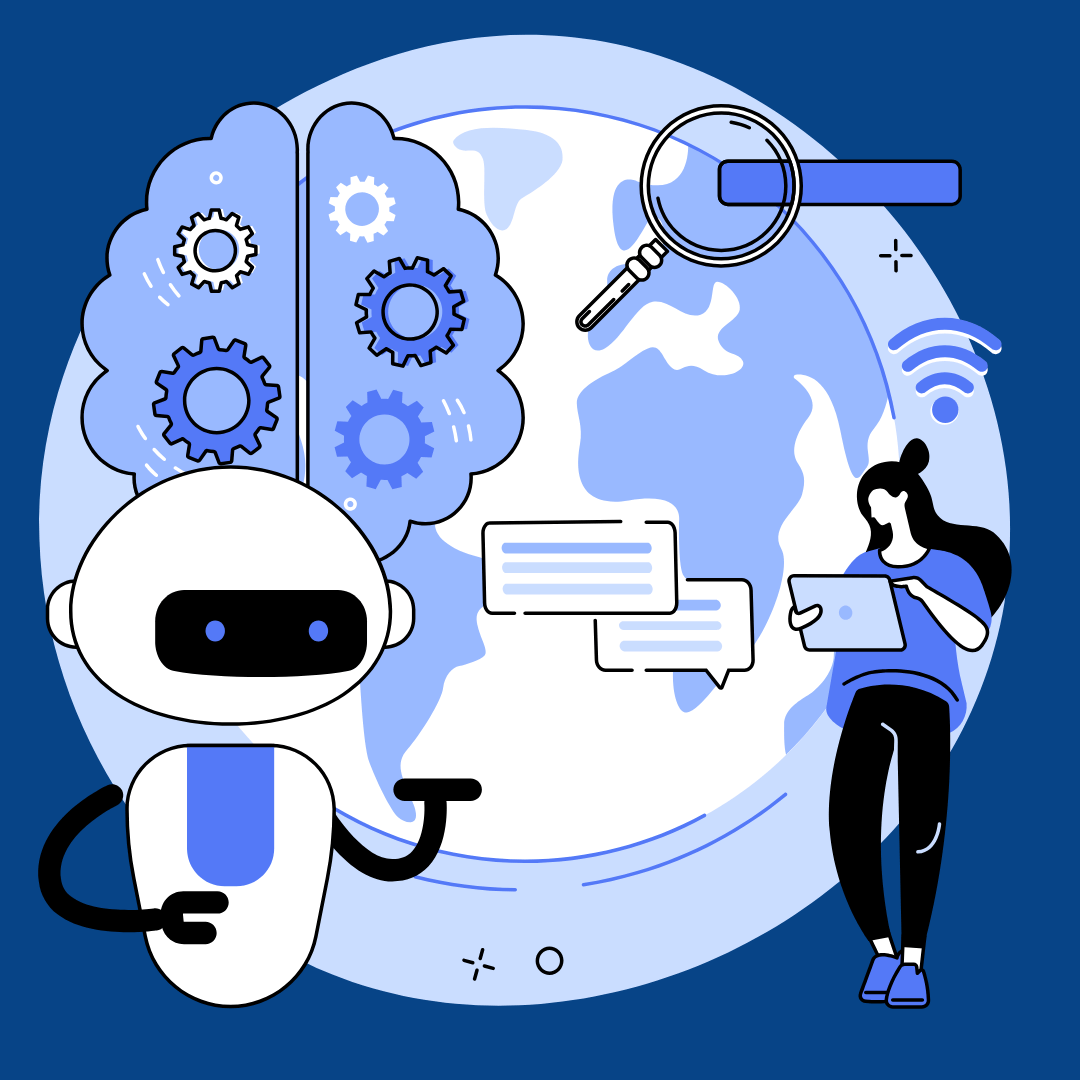
Introduction
The world of technology is constantly evolving, with new innovations reshaping industries and redefining market dynamics. In 2024, several emerging technologies are poised to drive significant transformations across various sectors, from healthcare and finance to manufacturing and retail.
Understanding these technologies and their market implications is crucial for businesses and investors seeking to stay competitive in this fast-paced landscape. In this blog, we will explore the top five emerging technologies of 2024, their potential applications, and the opportunities and challenges they present for different markets.
1. Artificial Intelligence (AI) and Machine Learning (ML)
Overview
Artificial Intelligence and Machine Learning continue to dominate the tech landscape in 2024. These technologies are becoming more sophisticated, enabling machines to perform complex tasks, learn from data, and make decisions with minimal human intervention.
Key Applications
- Generative AI: Creating new content, designs, and even code with tools like ChatGPT and DALL·E.
- AI in Healthcare: Assisting in diagnostics, drug discovery, and personalized medicine.
- AI in Finance: Enhancing fraud detection, algorithmic trading, and customer service through chatbots.
- AI in Retail: Personalizing customer experiences and optimizing supply chain management.
Market Implications
- Increased Automation: AI and ML will automate repetitive tasks, improving efficiency and reducing operational costs.
- Job Displacement and Creation: While some jobs may be automated, new roles will emerge in AI development, maintenance, and oversight.
- Ethical and Regulatory Challenges: The growing influence of AI raises concerns about data privacy, bias, and ethical use, prompting the need for robust regulations.
2. Quantum Computing
Overview
Quantum computing, which leverages the principles of quantum mechanics, is set to disrupt industries by solving complex problems that are beyond the reach of classical computers.
Key Applications
- Cryptography: Developing quantum-resistant encryption methods.
- Drug Discovery: Accelerating the identification of new compounds and treatments.
- Financial Modeling: Optimizing investment strategies and risk management.
- Supply Chain Optimization: Solving complex logistical challenges in real time.
Market Implications
- Competitive Advantage: Early adopters of quantum computing will gain a significant edge in industries requiring complex computations.
- Investment Opportunities: The quantum computing market is attracting significant investment, with startups and tech giants racing to achieve quantum supremacy.
- Skills Shortage: The demand for quantum computing expertise will outpace supply, driving up salaries and competition for talent.
3. 5G and Beyond (6G)
Overview
While 5G networks are still being rolled out globally, research and development for 6G technology is already underway. These next-generation networks promise unprecedented speed, reliability, and connectivity.
Key Applications
- IoT Expansion: Enabling seamless connectivity for billions of IoT devices.
- Autonomous Vehicles: Supporting real-time communication and decision-making for self-driving cars.
- Smart Cities: Enhancing infrastructure, traffic management, and public safety with real-time data.
- Immersive Experiences: Powering augmented reality (AR), virtual reality (VR), and mixed reality (MR) applications.
Market Implications
- Increased Connectivity: Businesses will benefit from improved communication, data transfer, and remote collaboration.
- New Business Models: Industries like gaming, entertainment, and healthcare will develop new services and revenue streams.
- Infrastructure Investments: Governments and telecom providers will need to invest heavily in network infrastructure to support widespread 5G and 6G deployment.
4. Blockchain and Decentralized Finance (DeFi)
Overview
Blockchain technology is evolving beyond cryptocurrencies, with applications in decentralized finance (DeFi), supply chain management, and digital identity verification.
Key Applications
- DeFi Platforms: Offering decentralized financial services like lending, borrowing, and trading without intermediaries.
- Supply Chain Transparency: Tracking and verifying the origin and movement of goods in real time.
- Smart Contracts: Automating and enforcing contract terms without the need for intermediaries.
- Digital Identity: Providing secure, decentralized digital identity solutions.
Market Implications
- Financial Inclusion: DeFi platforms will provide financial services to underserved populations, fostering economic growth.
- Operational Efficiency: Blockchain will reduce fraud, improve transparency, and streamline operations in various industries.
- Regulatory Scrutiny: As blockchain adoption grows, governments will develop new regulations to address security, compliance, and taxation.
5. Biotech and Gene Editing
Overview
Advancements in biotechnology and gene editing, particularly CRISPR (Clustered Regularly Interspaced Short Palindromic Repeats), are unlocking new possibilities in healthcare, agriculture, and beyond.
Key Applications
- Personalized Medicine: Tailoring treatments based on an individual’s genetic makeup.
- Agricultural Innovation: Developing genetically modified crops that are more resilient and nutritious.
- Disease Prevention: Editing genes to prevent or cure genetic disorders.
- Bio-Manufacturing: Using biological processes to produce materials, chemicals, and pharmaceuticals.
Market Implications
- Healthcare Transformation: Gene editing will revolutionize the treatment and prevention of diseases, leading to longer, healthier lives.
- Ethical Debates: The ability to modify human genes raises ethical concerns and the need for regulatory oversight.
- Investment Opportunities: The biotech sector will attract significant investment, with startups and established companies developing groundbreaking solutions.
Conclusion
The top emerging technologies of 2024—AI and ML, quantum computing, 5G and beyond, blockchain, and biotech—are poised to reshape industries and create new market opportunities. Businesses that embrace these technologies and adapt to their implications will be well-positioned for success in the years ahead.
However, with new opportunities come challenges, including ethical considerations, regulatory compliance, and the need for specialized skills. By staying informed and proactive, organizations can navigate this evolving landscape and harness the power of emerging technologies to drive innovation and growth.
1. What are the top emerging technologies in 2024?
The top emerging technologies in 2024 include AI and machine learning, quantum computing, 5G and beyond, blockchain, and biotech.
2. How will AI impact the market in 2024?
AI will enhance automation, improve customer experiences, and drive innovation across industries such as healthcare, finance, and retail.
3. What is the significance of quantum computing?
Quantum computing will solve complex problems in cryptography, drug discovery, and financial modeling, providing a competitive advantage to early adopters.
4. How will 5G and 6G technologies shape the future?
5G and 6G technologies will enable seamless IoT connectivity, support autonomous vehicles, and power immersive experiences like AR (Augmented Reality), VR (Virtual Reality) and MR (Mixed Reality).
5. What are the market implications of blockchain technology?
Blockchain will enhance supply chain transparency, enable decentralized finance (DeFi), and provide secure digital identity solutions, driving operational efficiency and financial inclusion.


